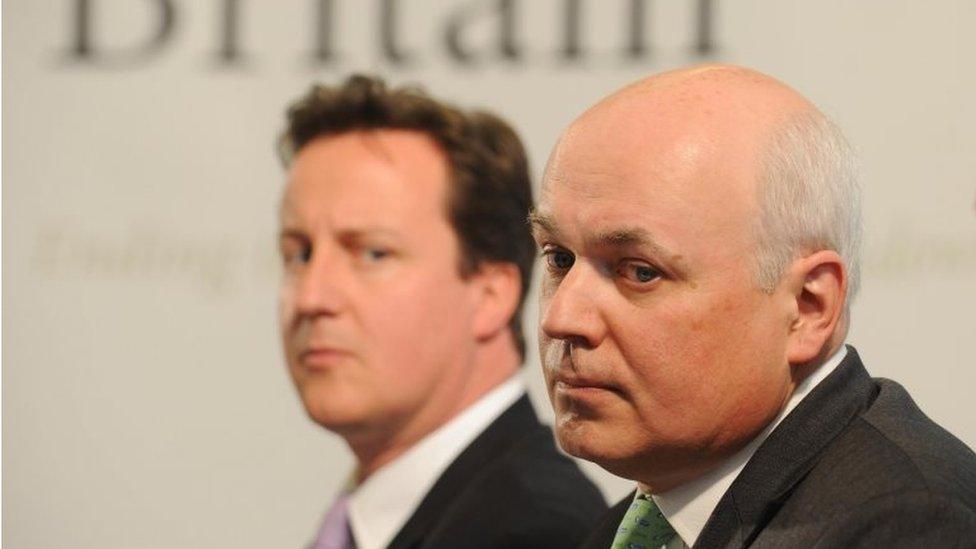Duncan Smith resignation 'was about EU' - Baroness Altmann
- Published
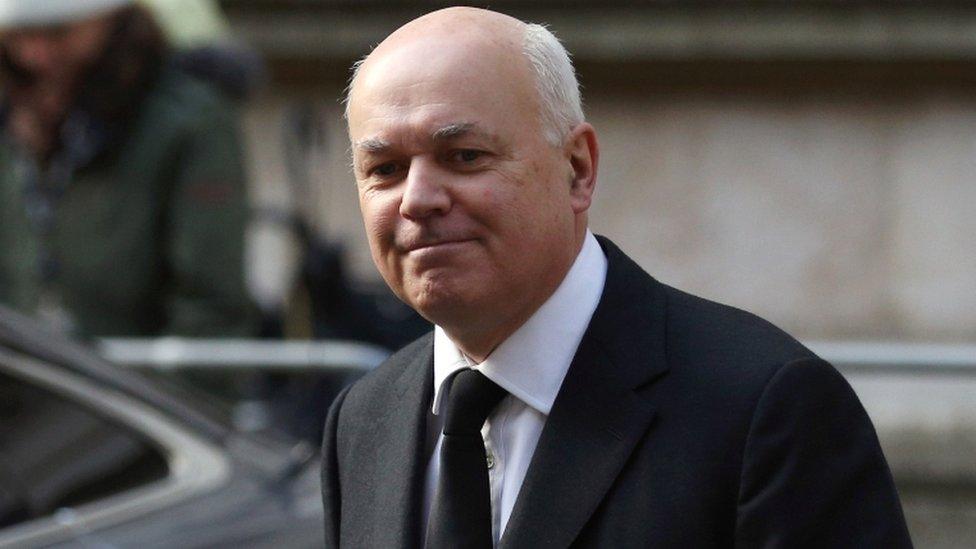
Iain Duncan Smith quit on Friday, saying the latest planned cuts to disability benefits were "not defensible"
Iain Duncan Smith's resignation was really about the EU, pensions minister Baroness Ros Altmann has said.
On Friday, Mr Duncan Smith said he was quitting as work and pensions secretary in protest at disability benefits cuts.
But Lady Altmann, who described her ex-boss as "exceptionally difficult" to work for, accused him of wanting "to do maximum damage to the party leadership" to help his campaign to leave the EU.
Sources close to Mr Duncan Smith insist his resignation was not about the EU.
Meanwhile, former foreign secretary Sir Malcolm Rifkind has told the BBC he finds Iain Duncan Smith's behaviour "bizarre".
He said it was "difficult to believe that someone committed to welfare issues would resign on them",
'Not defensible'
Mr Duncan Smith is due to give his first interview since resigning on BBC One's Andrew Marr Show at 09:00 GMT. Stephen Crabb was appointed as Mr Duncan Smith's replacement on Saturday.
In his resignation letter, which many commentators have interpreted as an attack on Chancellor George Osborne, Mr Duncan Smith said the latest changes to benefits for the disabled were "not defensible in the way they were placed within a Budget that benefits higher earning taxpayers".
But Lady Altmann said she was "shocked" by the resignation saying her former boss had "championed the very package of reforms to disability benefits he now says is the reason he has resigned".
In a statement, Lady Altmann said: "This really seems to be about the European referendum campaign.
"He seems to want to do maximum damage to the party leadership in order to further his campaign to try to get Britain to leave the EU.
"As far as I could tell, he appeared to spend much of the last few months plotting over Europe and against the leadership of the party and it seemed to me he had been planning to find a reason to resign for a long time."
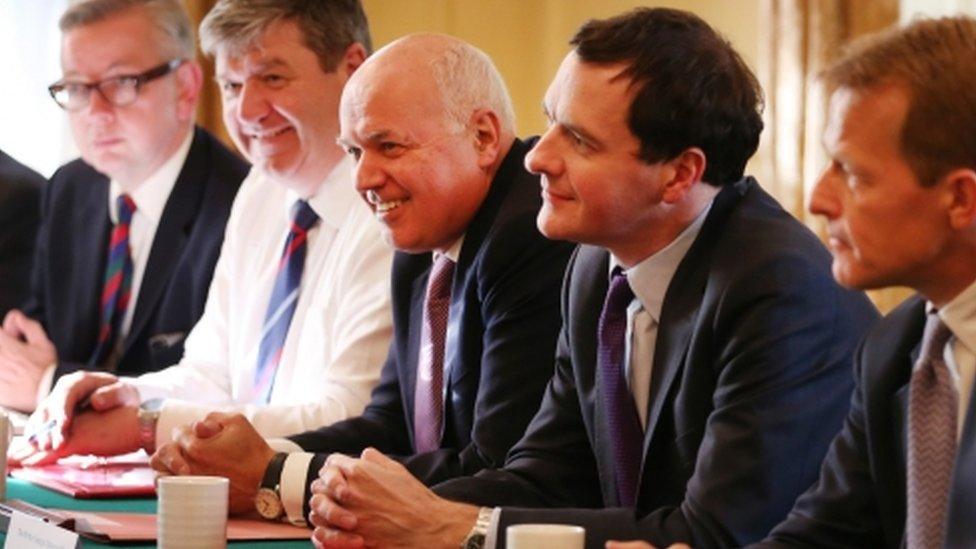
She also said she had found him "exceptionally difficult" to work for and said he had "often been obstructive to my efforts to resolve important pension policy issues".
Former foreign secretary Sir Malcolm Rifkind said that Mr Duncan Smith "quite clearly knew" before the chancellor's statement how his department would be affected.
He should have made it clear he wanted to resign before the budget was announced, Mr Rifkind said.
'United government'
But another of Mr Duncan Smith's junior ministers, employment minister Priti Patel, praised Mr Duncan Smith as a "great social reformer".
"Since coming to office in 2010, he has made a real difference to the life chances of people throughout the country by reforming the welfare system to ensure that work always pays," she said.
And Justice Secretary Michael Gove, writing in the Sunday Telegraph, external, called Mr Duncan Smith "an inspirational social reformer" who has been "guided throughout by a clear sense of noble moral purpose".
However, Mr Gove, who like Ms Patel and Mr Duncan Smith, is campaigning for the UK to leave the EU, wrote that a "united and resolute government" was needed.
He wrote that he also "hugely" admired Mr Osborne and said that "I can't - and won't - take issue with either of them in the areas they've championed and led".
In his Budget on Wednesday, Mr Osborne said the government would be spending an extra £1bn on the disability budget but changes to benefits announced a few days earlier had suggested the government would save £4.4bn on this by 2020-21.
They included changes to Personal Independence Payments (PIP), due to replace Disability Living Allowance (DLA) in January 2017, that were expected to save £1.3bn a year, but sparked an outcry from opposition parties and some Tory MPs.
But on Friday, before Mr Duncan Smith resigned, a government source had said the planned changes would be "kicked into the long grass".
Replying to Mr Duncan Smith on Friday, David Cameron said he was "puzzled and disappointed" that Mr Duncan Smith had decided to go when they had agreed to have a rethink about the policies.
- Published18 March 2016
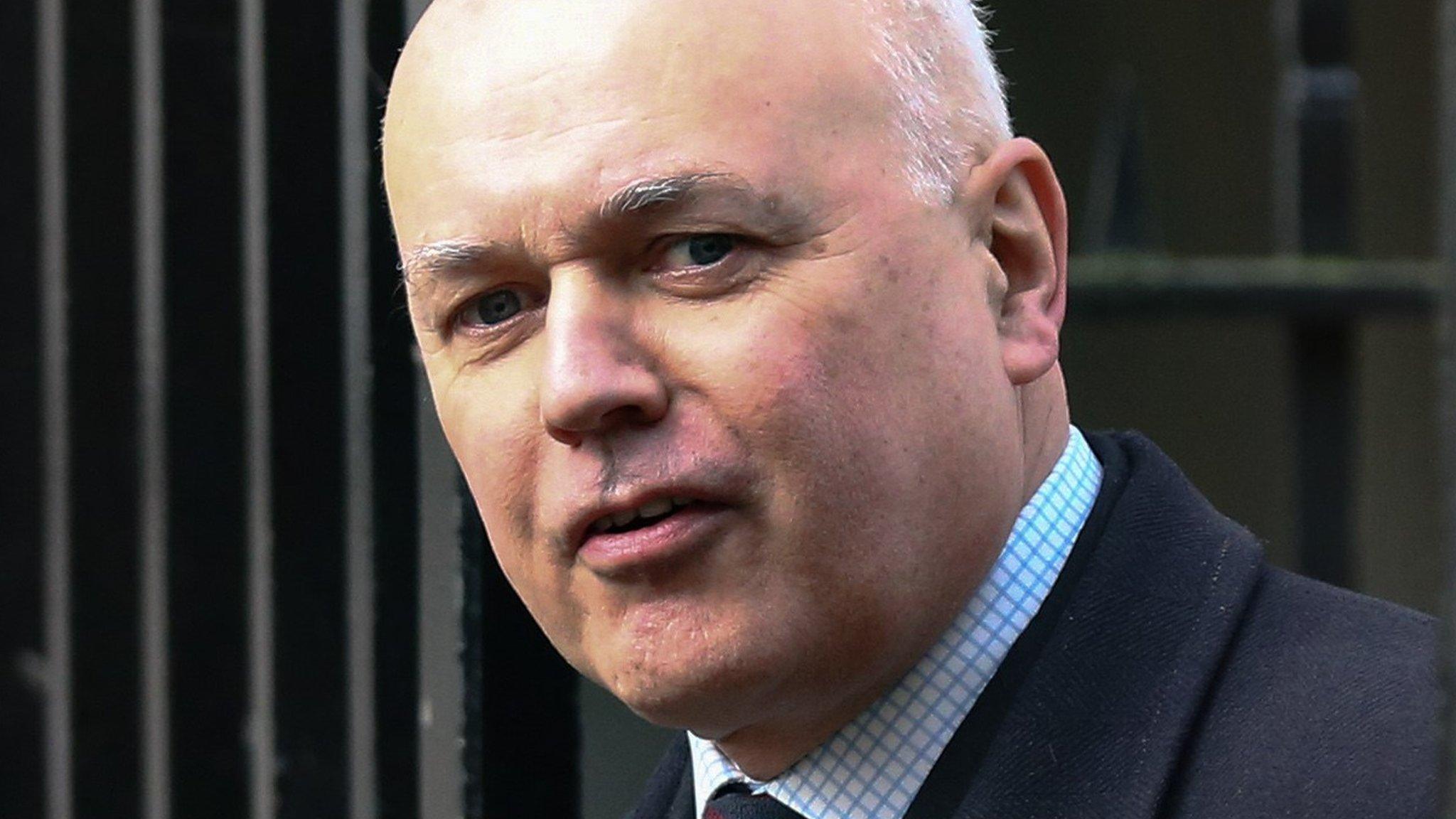
- Published19 March 2016
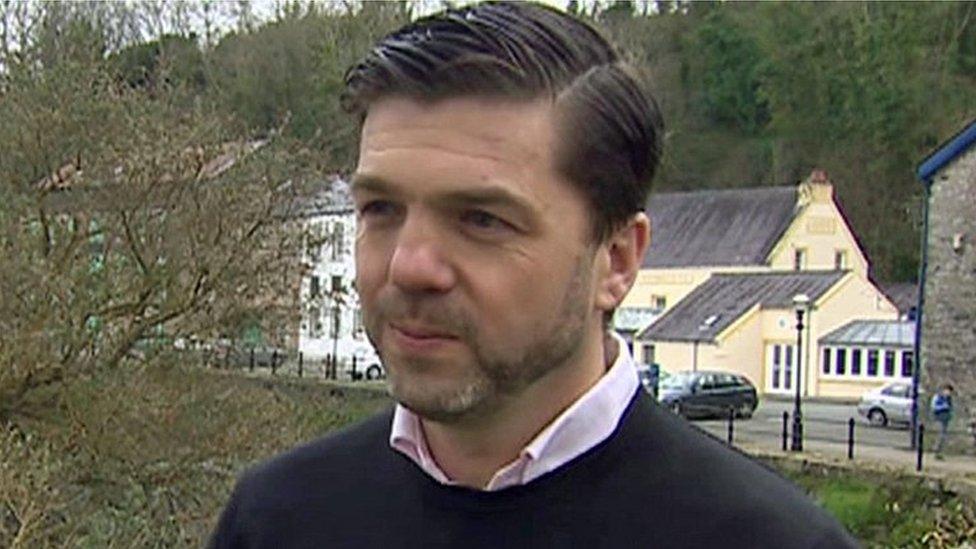
- Published19 March 2016
- Published19 March 2016
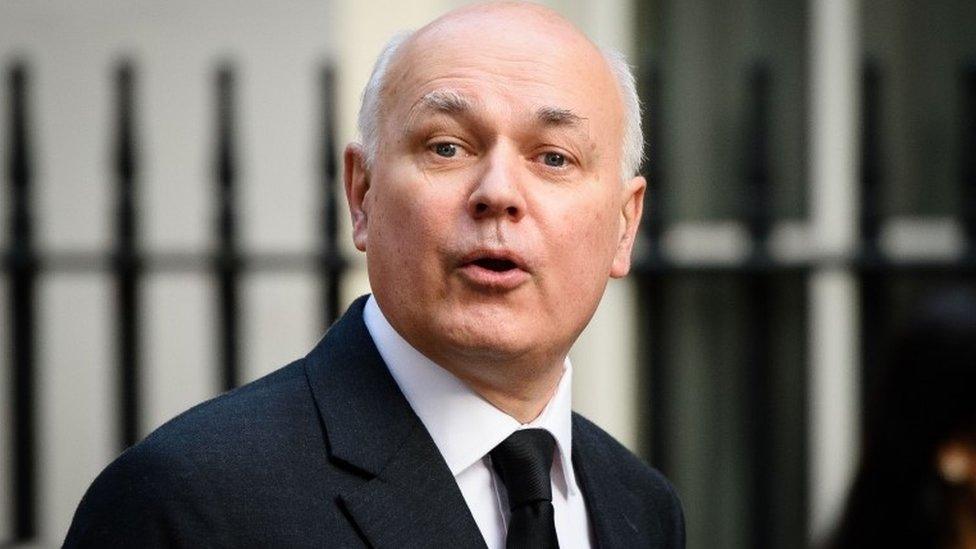
- Published19 March 2016
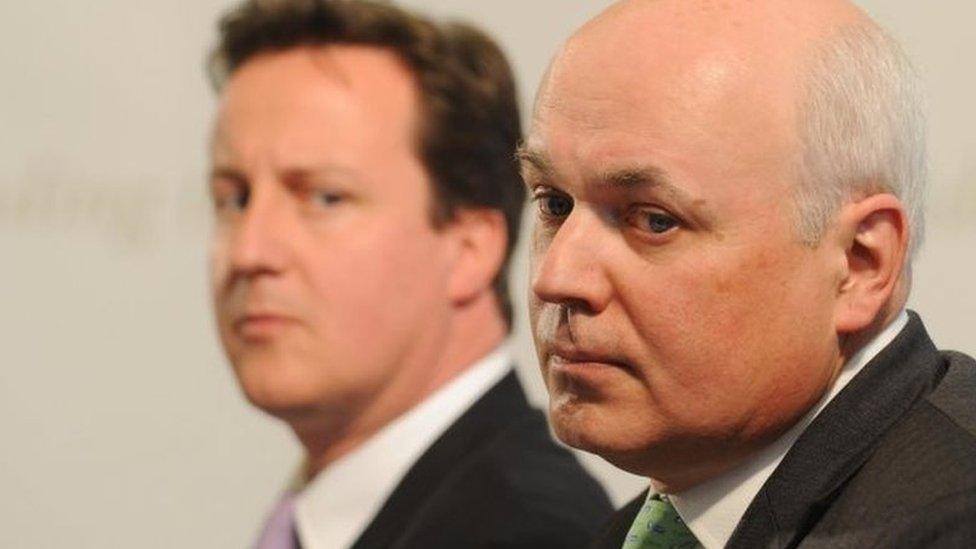
- Published19 March 2016
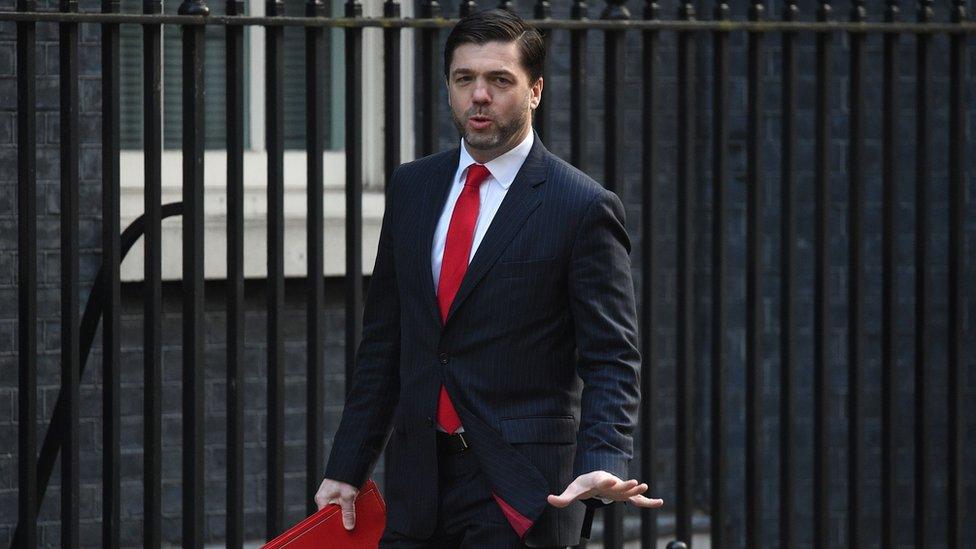
- Published18 March 2016
- Published18 March 2016
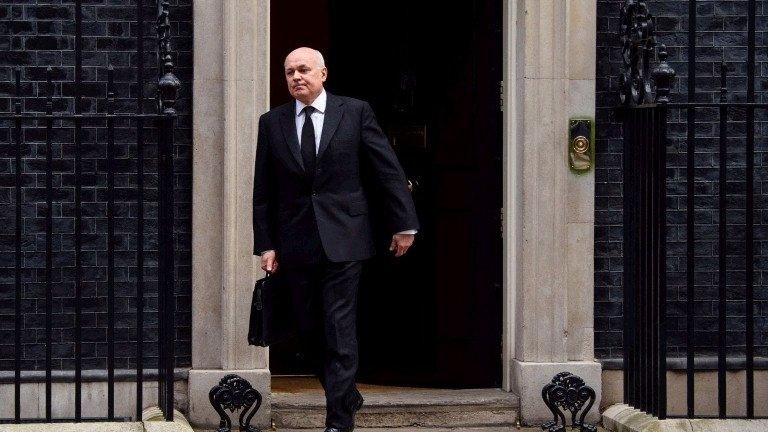
- Published18 March 2016
